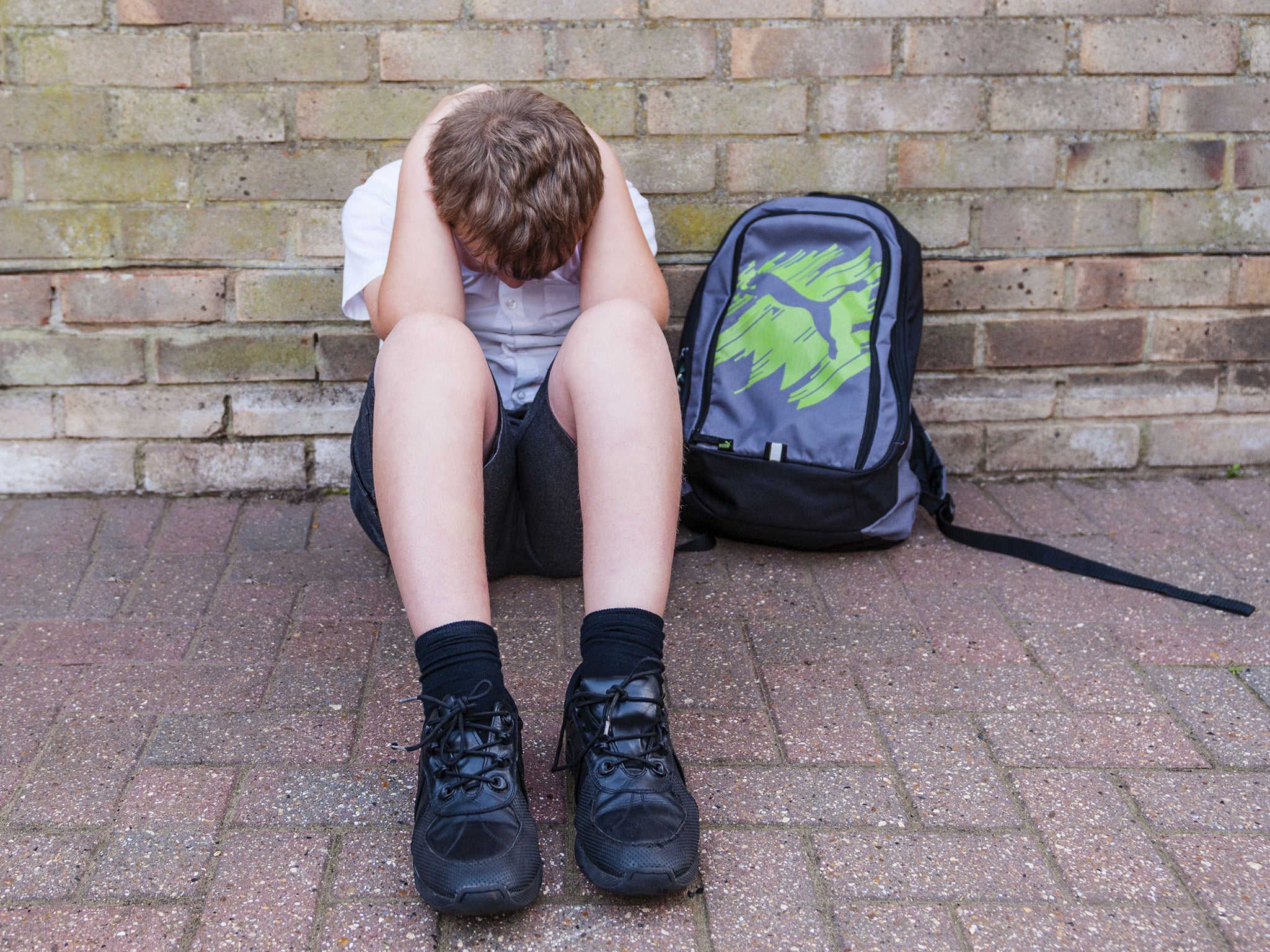If the price of saving gay children from bullying is to ghettoise them, then so be it
It might sound drastic, but homophobia is having fatal consequences in our schools

You can almost hear the outrage screaming from the headlines. Public money? Used to build a special school for gay, lesbian, bisexual and transgender children? What is this country coming to?
Well, it could be happening – an LGBT group in Manchester has proposed plans for a small (40-pupil) school designed to cater for secondary-age pupils whose sexuality renders them at risk from bullying, or worse. Last year, 14-year-old Elizabeth Lowe killed herself in a Manchester park because she was afraid of coming out to her Christian parents.
The strategic director of the group, Amelia Lee, says she was inspired to support LGBT pupils in this way after visiting the successful Harvey Milk School in New York. She also suggested the school could be open to pupils who were not gay or transgender but who were questioning their sexuality. She says she already has backing from the city council and the Schools Out anti-homophobic bullying campaign for a feasibility study.
While it’s more likely that this will result in “additional educational support” for LGBT pupils, rather than a fully blown secondary, the notion of whether gay pupils ought to be taught out of the mainstream, or not, is worth examining.
Clearly from the tragic example of Elizabeth Lowe and the testimony of many others, homophobic bullying at school is rife. And once school becomes an arena for victimisation it is overwhelming and devastating.
One thinks of Harriet The Spy, Louise Fitzhugh’s masterpiece of adolescence in 1970s New York, whose titular heroine yearns to be accepted without having to change who she is. Having been “outed” for writing a candid diary about them, Harriet is barred from her entire peer group, who form a club against her. They build a clubhouse and sit in it, talking loudly about her. Later they parade around town carrying a huge sign about her. Someone spits in her face. She stops going to school. She has a breakdown. The heroine, who dresses like a boy, was particularly taken up by lesbian readers.
But is the answer to build a separate establishment? And if you did, would gay young people thank you for it? Indeed, if there had been an LGBT school in existence for Elizabeth Lowe, judging by the fact that her suicide was apparently caused by the sad fact that she was too scared to come out to her parents, it is unlikely they would have leafed through the prospectus.
Equally, if you are being victimised, surely it is the bullies who need to be taken out of the fold, and given special attention, not you. Imagine being not only anxious about your developing sexuality, but also uneasy about being seen as “different”. There might be nothing worse than being told that you are going to be drafted off to the “special school”.
Young people spend a lot of their energies trying to fit in. When you are an adult, you actively try not to dress like your friends. When you are a child, it’s the opposite. If you already feel your sexuality makes you different from everyone else, going to the “gay school”, in a separate building, with a separate uniform, might be the worst thing imaginable.
Naturally, this has occurred to the proposers. “The last thing we want is this to become a ghetto,” says Lee. She describes her putative institution as “a place where students who are struggling with the negative effects of issues like bullying could attend classes for a period of time while ensuring they get the grades they are capable of”. Children might be referred there for a year if they were having problems, she suggests, and then go back to their old school.
Indeed, colleagues and friends of mine who are gay say that a small, dedicated LGBT school would be ideal, since it would, at a stroke, take sexuality out of the classroom. If you have already jumped the hurdle of acknowledging your sexuality, then you can focus on being educated. An LGBT school could support those children who are in danger of missing out on school and so allow them to get on with the rest of their lives.
The alternative? It could be a slide into drink and drugs dependency, or worse.
But one has also to think about what is being lost, as well as gained, from a policy of separation – those things which only a big bustling secondary can provide: the orchestra, the volleyball team, the school prom. You could have both, say advocates. Develop great supportive schools with trained staff in the main, but for the most in need, a small “gay school” might catch those who fall through the net and prevent lives being ruined.
Join our commenting forum
Join thought-provoking conversations, follow other Independent readers and see their replies
Comments
Bookmark popover
Removed from bookmarks